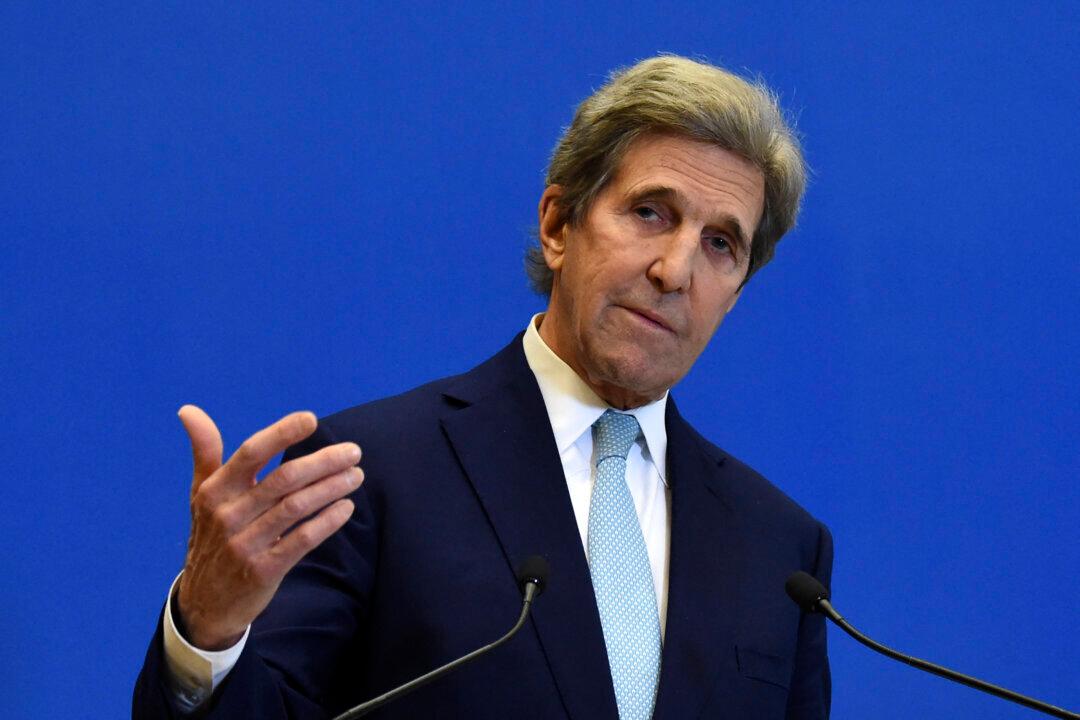The United States is “sending the absolute wrong signal” by sending John Kerry, the Biden administration’s climate envoy, on a trip to China to discuss “raising global climate ambition,” House Foreign Affairs Committee Lead Republican Michael McCaul (R-Texas) said Tuesday.
Kerry is expected to arrive in Shanghai on Wednesday and has scheduled meetings with Chinese officials on Thursday and Friday, ahead of President Joe Biden’s Leaders Summit on Climate scheduled for later this month, and the 26th Conference of the Parties (COP26) to the United Nations Framework Convention on Climate Change later this year.





